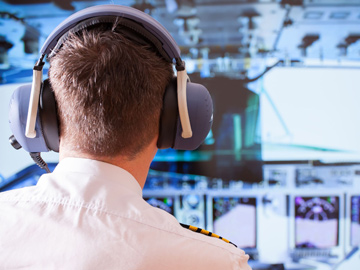
A new ATSB report reveals that there is no significant difference in competency and proficiency of low-hour airline pilots who undertake cadet pathway programs when compared with their direct entry and high-hour peers.
The issue of pilot cadet pilot training programs has been the subject of significant debate and concern within the aviation industry. Cadets are pilots who, generally, have received limited or no prior flight training before starting their cadetship. Instead, they are trained specifically for an airline at a flight training organisation. After training, these pilots enter the airline as a second or first officer, depending on the airline and its requirements.
These pilots, with their comparatively low hours of experience, are sometimes perceived to be less competent than those who have taken more traditional routes. Traditional routes involve the accumulation of flight hours either with the Defence Force, in general aviation or other (often smaller) airlines, before the pilots enter a major airline as a second or first officer.
The research revealed that overall performance of cadets and low-hour pilots matched that of their direct entry and high-hour peers.
This issue was highlighted after two high-profile international aviation accidents in 2009, one involving a Bombardier DHC-8 at Buffalo, New York, and the other, an Airbus A330 operating as Air France flight 447 (AF447), en-route from Rio de Janeiro, Brazil to Paris, France. In response to the DHC-8 accident, the United States Congress enacted legislation to increase the amount of flying experience that first officers would need, in order to enter an airline, to 1,500 hours.
Despite the debate and regulations, there has been very little research on the differences between pilots with different training backgrounds. For the research report, Pilot experience and performance in an airline environment, the ATSB gathered data from three airlines to explore the issue of pilot performance as a function of both flight hour experience, and entry pathway. Entry pathway analysis compared cadet pilots (who generally had not accumulated prior flight hours or experience) to those pilots who entered an airline after accumulating flight hours in other areas of the aviation industry.
The research revealed that overall performance of cadets and low-hour pilots matched that of their direct entry and high-hour peers. All pilots were marked as proficient at the completion of the check flights, with the only differences between the groups being a function of how many exceeded the required standard.
The evidence in this report indicates that despite industry concerns, the cadet pathway for low-hour pilots is a valid option for airlines. There was no evidence to suggest that cadets or low-hour pilots within the airlines studied were any less competent or proficient than their direct entry and high-hour peers.
Read the full research report, Pilot experience and performance in an airline environment AR-2012-023.


